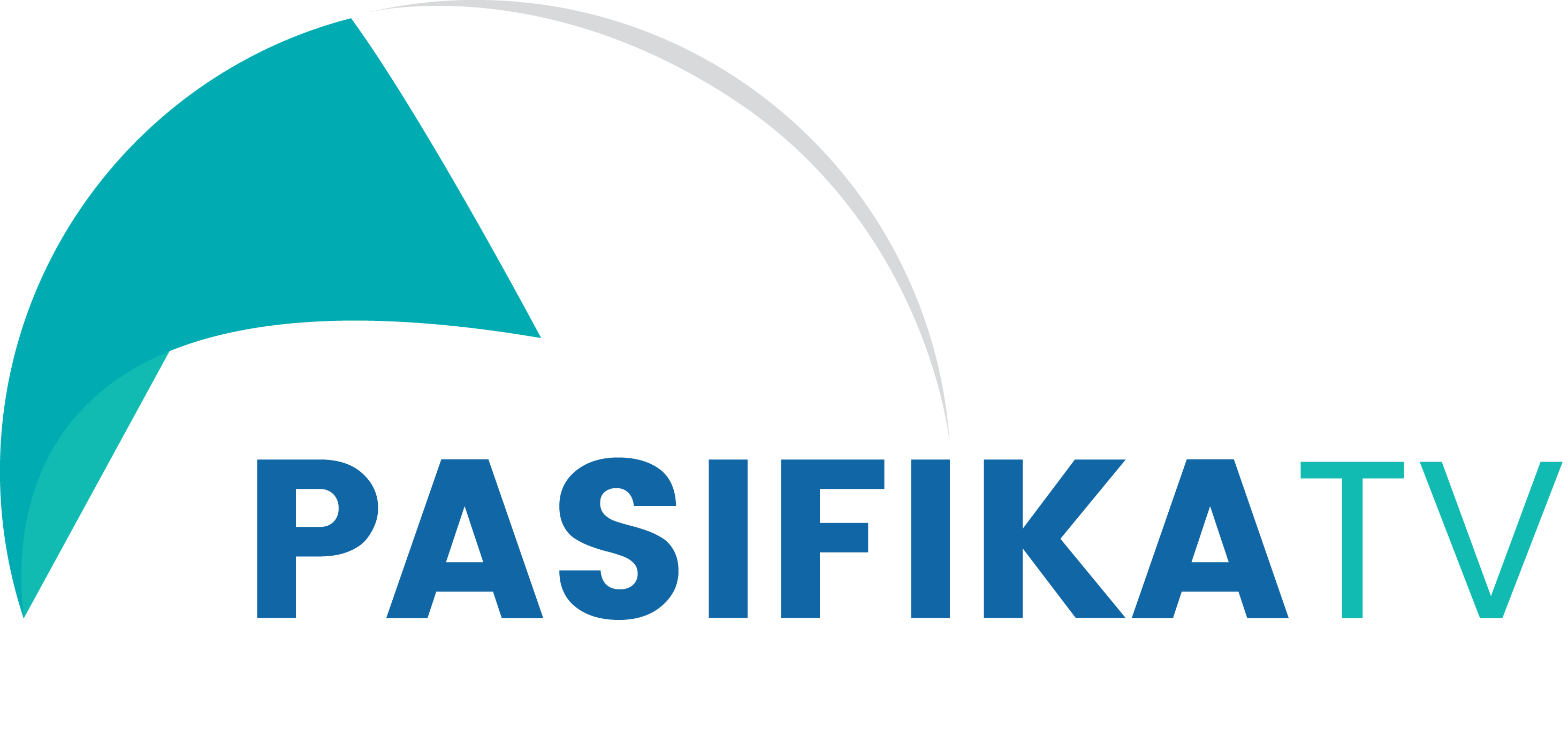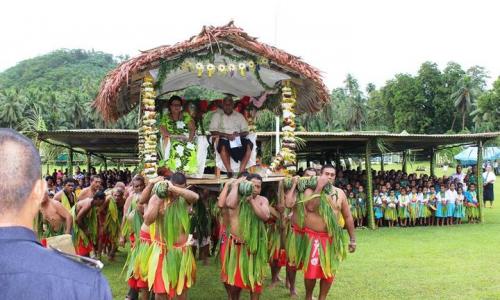
Fiji's Prime Minister Frank Bainimarama and his wife Mary are welcomed to Rotuma in a traditional ceremony during Rotuma Day celebrations. Photo: Facebook/Fiji govt
Aotearoa’s Rotuman community is excited to celebrate their language and culture together this year.
Last year’s Rotuman language week, New Zealand’s third, was forced online because of the Covid-19 pandemic.
This year’s theme for Gasav Ne Fäeag Rotuạm Ta – Rotuman Language Week – is Tutur häk ne måür lelei – the four pillars of life and wellbeing:
Måür Fak’ata (spiritual – a place of solace that gives meaning to life).
Måür Fakforo (physical – living life in all its fullness).
‘Os A’häe (psychological – steers our presence and place in life).
Hạikạinagaga (social – our connection with people).
According to Auckland-based Rotuman language tutor, Fesaitu Solomone, the traditional Rī Fak Rotuam is a thatched shelter or house which needs four strong pillars to hold the entire house together, “just like the four pillars for our wellbeing”.
She said the theme also acknowledged and celebrated the strength and resilience of New Zealand’s Pacific communities during the Covid-19 pandemic.
Activities and events will be held through Aotearoa to showcase the richness of the Rotuman language, culture and traditions, Solomone said.
Minister for Pacific Peoples Aupito William Sio will launch tomorrow’s event during an Exclusive Viewing of Rotuman Collections at the Auckland Museum.
This would be followed by the launch of the Rotuman Language Week Theme Song, Solomone said.
She also said the Gasav Ne Fäeag Rotuạm Ta events would be streamed live on the NZ Rotuman Language Week Facebook page.
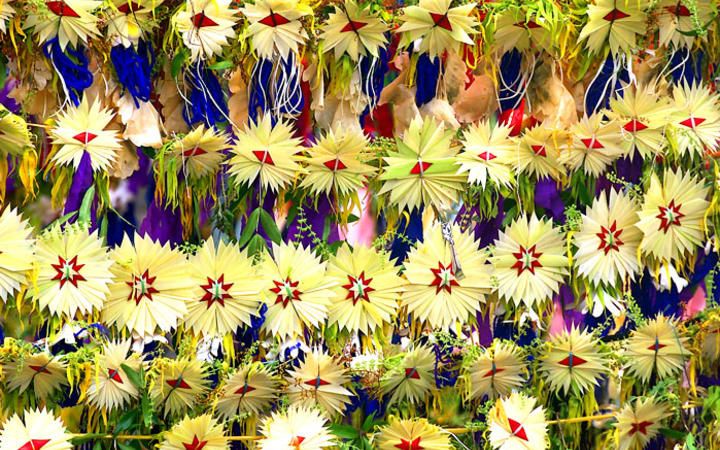

Rotuman fui or lei. Photo: Supplied
This year is extra special: Mario
Like a number of Pacific tongues, Rotuman was a language earmarked as under threat by the United Nations agency, UNESCO.
The head of the Auckland Rotuman Fellowship Group, Rachael Mario, says this is a concern.
It’s been a challenge to keep the language alive, Mario said.
“Language is what makes us who we are and is part of our culture and identity. It is our duty to preserve this invaluable taonga.
“We invite all Kiwis to come and join us and celebrate being Rotuman. We pay tribute to our elders and leaders, who have, for the last 35 years, continued to celebrate our culture in New Zealand.
“We thank them for keeping our customs and traditions relevant,” she said.
Mario said a showcase at the Auckland War Memorial Museum next weekend is among the highlights for the week-long celebrations.
The event is being hosted the New Zealand Rotuman Community Centre in the South Auckland suburb, Papatoetoe.
Mario said tomorrow also marked a special day for Rotumans.
“It’s Mother’s Day so we are going to have a pink ribbon breakfast which is open to everyone to come and join us.
“We’ll provide the breakfast with the Kingsland Methodist congregation so it’s a combined effort with the Mt Albert United Church.
“As well the Showcase, the programme will include Sunday’s Closing Church Service with the Ate Fak Rotuma (a traditional feast served on banana leaves, with people seated on the floor).”
Mario said following the Harmimia ‘Amah ‘Ne Haihanisiga or pink-ribbon breakfast, there will be singing of the popular Atumotu Helava.
There will also be a combined church service led by by the mothers.
The theme focuses on the wellbeing of our nation and communities, Mario said.
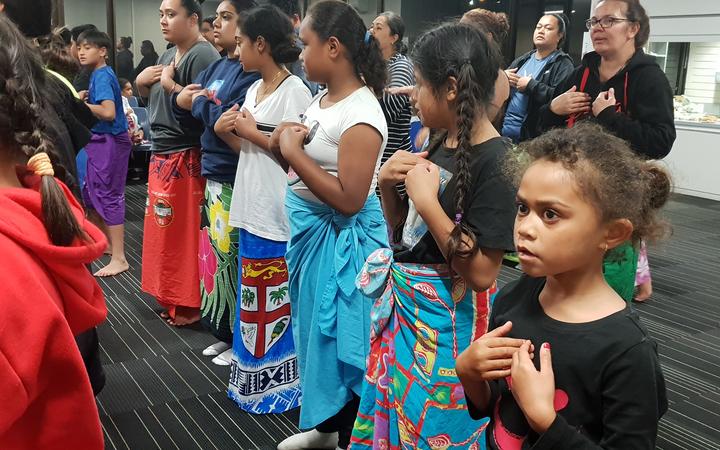

Rotuman children are learning to dance the traditional tautoga. Photo: Christine Rovoi
Rotumans go on air
A new radio programme has been launched to mark Rotuman Language Week.
From midnight to 2am on Saturdays the new weekly show, aired on Pacific Media Network’s 531pi station in Auckland, will feature narratives from the diaspora in Aotearoa.
Solomone, one of the show’s hosts, said they intend to include Rotumans from around the world to participate in the programme.
“Basically, it’s a bilingual programme so our target audience we’re looking at all our community members and those who are interested in the Rotuman language.
“These include those who are not fluent, who can’t speak the language properly or to converse in full Rotuman.
“And for those who are wanting to learn the language. So this programme is an opportunity for them to be a part of it.”
Solomone said people could share their views on issues that mattered to them including “things happening around the world in terms of our Rotuman community globally”.
“It is a programme for our people, mainly for us in Aotearoa.”
But it’s going to expand to everyone internationally, she said.
Facts about Rotuma
Rotuma is located almost 650 kilometres northwest of Fiji’s capital Suva.
The island is a Fijian dependency but closer to Tuvalu than to Suva and, while it’s influenced by Melanesian Fiji, Rotuma’s Polynesian culture is closer to that of Tonga and Samoa.
About 2000 people live on the island with 10,000 on mainland Fiji and thousands more, like me, around the world.
This year, on 13 May, also marks 140 years since Rotuman chiefs ceded the island to the United Kingdom.
Rotuman Language Week ends on Saturday 15 May.
Next in the series of New Zealand Pacific Languages Week is Samoan.
Vaiaso O Le Gagana Samoa kicks off on Sunday 30 May and runs until Saturday 5 June and coincides with Samoa’s independence day on 1 June. Samoa celebrates 60 years as an independent state this year.
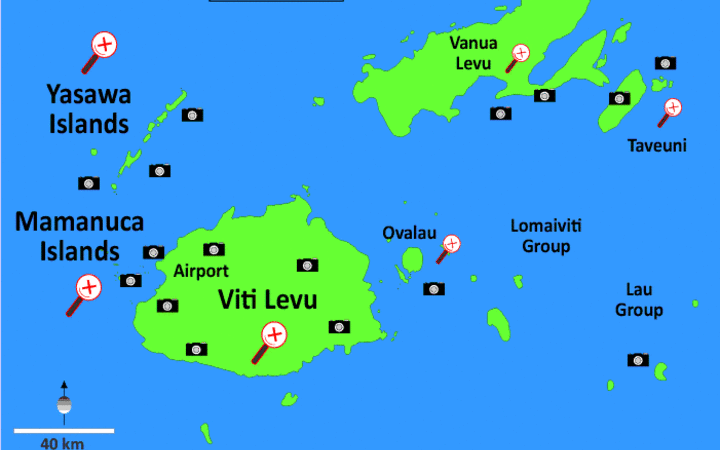

Rotuma is located about 650 kilometres northwest of Fiji’s capital Suva. Photo: Supplied
Resource: RNZ
